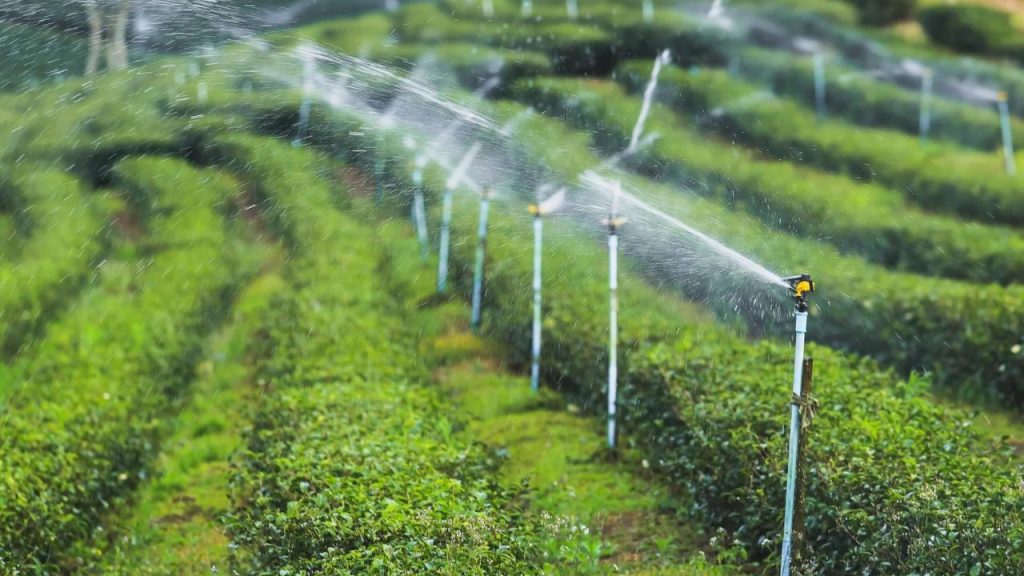The Importance of Effective Water Management
Effective water management is critical for maintaining agricultural productivity and ensuring the long-term sustainability of farming in the UK. Water is required for:
- Irrigation: To support crop growth, especially during dry periods.
- Livestock: For drinking, cleaning, and cooling animals.
- Soil Health: To maintain moisture levels that support plant and microbial life.
With the UK experiencing more frequent extreme weather events, such as droughts and floods, managing water resources has become a top priority for farmers.
Key Water Management Challenges
British agriculture faces several water management challenges that threaten its sustainability:
1. Climate Change and Unpredictable Weather Patterns
Climate change is leading to more unpredictable weather patterns in the UK, making water management increasingly difficult. Farmers are experiencing:
- Droughts: Prolonged dry spells can reduce water availability for irrigation, leading to lower crop yields and affecting livestock health.
- Flooding: Heavy rainfall and flooding can damage crops, erode soil, and contaminate water supplies, causing significant disruption to farming operations.
- Seasonal Variability: Changes in seasonal rainfall patterns can lead to water shortages during critical growing periods, further stressing crops and livestock.
2. Water Scarcity and Competition for Resources
Water scarcity is an emerging issue in certain parts of the UK, particularly in the southeast. The growing population, industrial demands, and environmental regulations are all competing for limited water resources. This competition leads to:
- Reduced Water Allocations: Farmers may face restrictions on water use during periods of scarcity, forcing them to prioritise certain crops or reduce overall production.
- Increased Costs: As water becomes scarcer, the cost of accessing and distributing water for agricultural use is likely to rise, putting financial pressure on farmers.
3. Soil Degradation and Water Retention Issues
Soil health plays a vital role in water management, as healthy soils retain moisture better and reduce the need for irrigation. However, issues such as:
- Soil Erosion: Erosion reduces the soil’s ability to retain water, leading to increased runoff and decreased water availability for crops.
- Compaction: Compacted soils have lower infiltration rates, causing water to pool on the surface rather than being absorbed into the ground, exacerbating both drought and flood risks.
- Loss of Organic Matter: Declining organic matter in soils reduces their capacity to hold water, making crops more vulnerable to water stress.
4. Infrastructure and Technology Limitations
The infrastructure and technology available for water management in British agriculture are often outdated or inadequate to meet modern challenges. Farmers may struggle with:
- Inefficient Irrigation Systems: Traditional irrigation methods can be wasteful, leading to overuse of water and increased costs.
- Lack of Storage Facilities: Insufficient storage capacity means that excess water during wet periods cannot be stored for use during dry spells, leading to water shortages when it’s most needed.
- Limited Access to Advanced Technology: Many farmers lack the resources to invest in modern water management technologies, such as precision irrigation and water-saving sensors, which can improve efficiency and reduce waste.
Potential Solutions for Improved Water Management

To address these challenges, British agriculture needs to adopt a range of strategies and solutions:
1. Adoption of Sustainable Farming Practices
Sustainable farming practices can help improve water management by enhancing soil health and reducing the need for irrigation. These practices include:
- Cover Cropping: Planting cover crops to protect the soil from erosion, improve its structure, and increase its water retention capacity.
- Reduced Tillage: Minimising soil disturbance to maintain its natural structure and moisture-holding ability.
- Agroforestry: Integrating trees and shrubs into farming systems to enhance water infiltration and reduce runoff.
2. Investment in Modern Irrigation Technologies
Upgrading to modern irrigation systems can significantly improve water use efficiency. Technologies such as:
- Drip Irrigation: Delivers water directly to the roots of plants, minimising waste and ensuring that crops receive the right amount of water.
- Precision Irrigation: Uses sensors and data analytics to monitor soil moisture and weather conditions, allowing farmers to apply water more accurately and efficiently.
- Rainwater Harvesting: Capturing and storing rainwater for use during dry periods can reduce reliance on external water sources and improve resilience to drought.
3. Enhancing Water Storage and Distribution Infrastructure
Improving water storage and distribution infrastructure is essential for managing water resources more effectively. This could involve:
- Building Reservoirs: Constructing on-farm reservoirs to store excess water during wet periods for use during dry spells.
- Upgrading Distribution Systems: Modernising water distribution networks to reduce losses and ensure that water is delivered where it’s needed most.
- Collaborative Water Management: Encouraging cooperation between farmers, local authorities, and water companies to develop regional water management plans that balance the needs of agriculture with those of other water users.
Conclusion
Water management is one of the most pressing challenges facing British agriculture today. As climate change continues to alter weather patterns and competition for water resources intensifies, farmers must adopt more sustainable practices and invest in modern technologies to secure their water supply. By addressing these challenges head-on, British agriculture can ensure a more resilient and sustainable future for food production.
